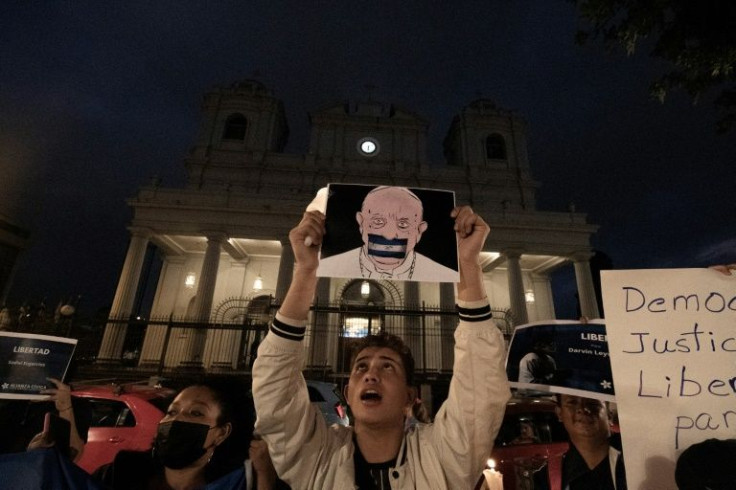
In response to his refusal to accompany a group of 222 political prisoners who were freed and flown to the U.S. last week, a Catholic bishop was jailed in Nicaragua and had his citizenship taken away. The U.S. has demanded the Nicaraguan government release this individual.
On Friday, Bishop Rolando Alvarez, a vocal opponent of Daniel Ortega, the president of Nicaragua, received a sentence of 26 years in prison for "conspiracy" and "fake news."
"We condemn this action by the government of Nicaragua and urge Bishop Alvarez's immediate release," U.S. State Department spokesperson Ned Price told reporters on Monday, adding that last week's prisoner release was a welcome step but "not a panacea for the many concerns we have with the Nicaraguan regime".
Pope Francis prays for peace and dialogue in Nicaragua at today's Angelus, following news of the sentencing of the Bishop of Matagalpa, Rolando Alvarez, and the expulsion of 222 people to the United States: "Let us pray together to Our Lady."#PopeFrancis #Angelus pic.twitter.com/C58VFDSHsw
— Vatican News (@VaticanNews) February 12, 2023
The government of Ortega has been accused of imprisoning critics like Alvarez, the bishop of the central city of Matagalpa, along with attempts to silence dissent. Alvarez had been under house arrest since August when police raided his church residence in a pre-dawn raid, Al Jazeera reported.
The Ortega regime has been criticized by Alvarez for the violence that followed the antigovernment rallies that began in April 2018 and resulted in hundreds of deaths. The bishop has also condemned what he considers as police harassment against him and others in the Catholic Church, describing his experiences as "persecution."
As for the Catholic Church, Ortega has previously called it a "dictatorship" and claimed that priests and bishops are "coup plotters" working for the United States. Church leaders had been among the mediators in the 2018 conflict.
We condemn the Nicaraguan government’s sentencing of Bishop Rolando Álvarez to 26 years in prison, as well as the decision to strip him and all released political prisoners of Nicaraguan citizenship. We continue to call for Bishop Álvarez's release. -BAN
— Brian A. Nichols (@WHAAsstSecty) February 13, 2023
On Sunday, Pope Francis expressed concern over Alvarez's lengthy prison term, one of the longest handed down to an opposition figure in recent years.
"The news that arrived from Nicaragua has saddened me no little,'' the pope said in an address at St Peter's Square in the Vatican, asking for those involved to "open their hearts".
Alvarez was one of two political prisoners on Thursday who refused to board a plane to the U.S. after the Nicaraguan government freed them on the condition that they be expelled from the country.
The release has been described by Ortega's government as an effort to eject criminals and foreign "agents" from Nicaragua.
#Breaking #Nicaragua: The "justice" system of the regime of Daniel Ortega condemned the bishop of Matagalpa, Rolando Álvarez, for being a "traitor to the homeland" and "undermining national integrity."
— Ines San Martin (@inesanma) February 10, 2023
He was sentenced to 26 years and 4 months in prison. pic.twitter.com/xh5VQXJbLV
Five rival presidential candidates, journalists, clergymen, student activists, and other opponents of Ortega's administration were among the 222 people who were freed. All of the prisoners would lose their Nicaraguan citizenship after they were released from custody, a proposal made by Ortega's legislative allies that would require a constitutional amendment to become law.
Last Friday, U.S. Secretary of State Antony Blinken had a phone conversation with Nicaraguan Foreign Minister Denis Moncada about the release of prisoners and the "importance of constructive dialogue."
The U.S. has previously instituted a series of sanctions against the Nicaraguan government, which it has criticized as authoritarian.
© 2024 Latin Times. All rights reserved. Do not reproduce without permission.



